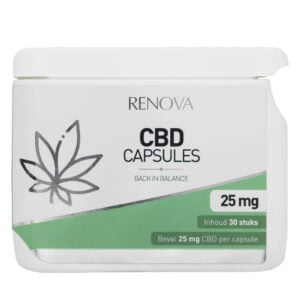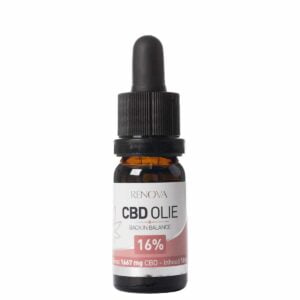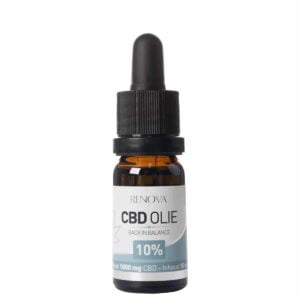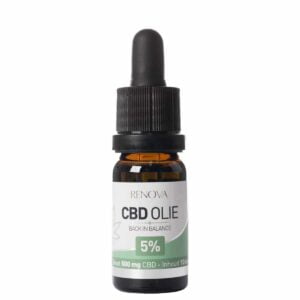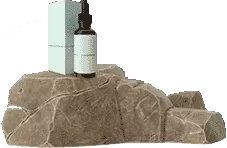CBD Pros and Cons

Are you contemplating whether to buy CBD oil and take CBD?
In 2021 Most likely, you are already surrounded by various cannabidiol products and CBD enthusiasts taking CBD and speaking about its possible benefits on the body and mind.
CBD oil is booming in popularity, and it’s difficult not to want to try one of the trending products. Even so, adding a new ingredient to your wellness routine might raise many questions and concerns. Now you might wonder what CBD pros and cons are and if it’s worth trying CBD products.
The list of pros and cons of CBD oil below serves to help make things easier and shed light on the primary advantages and disadvantages of CBD oil to help you decide whether you want to jump on the bandwagon of CBD consumers.
Let’s start with its pros:
The good news if you are concerned about its safety is that CBD is a natural, plant-derived compound. It’s not a lab-made or synthetic cannabinoid that the science came up with to infuse millions of products with CBD.
CBD, short for cannabidiol, has been around as long as cannabis has been. Scientific evidence suggests people used cannabis even 5,000 years ago due to its possible health benefits and effects on the human body and mind.
Then how come we learned about CBD only recently?
Unfortunately, until the mid-20th century, even science didn’t know much about cannabis or its active ingredients.
The renowned American Chemist Roger Adams discovered CBD in 1940 – he was the first to isolate it from cannabis, thus laying the foundation for many discoveries and the birth of the billion-dollar CBD industry.
Today, thousands of manufacturers extract CBD from the hemp plant and use the extract to infuse various products with CBD oil. Therefore, it’s an ingredient found in nature rather than a lab-made compound that could be detrimental to your health and cause numerous side effects.
Many people use the terms cannabis and marijuana interchangeably, without realizing marijuana isn’t the only type of cannabis plant. Roger Adam’s discovery of CBD laid the foundation for discovering other cannabinoids in cannabis, like THC. Bulgarian-born chemist Raphael Mechoulam in Israel discovered the psychoactive cannabinoid THC in 1964 and revealed the reason behind marijuana’s psychoactive properties and mind-altering side effects. THC turned out to be the primary active psychoactive cannabinoid in cannabis – the reason for getting consumers’ high’.
As science learned more about cannabinoids and their properties, it could distinguish two primary types of the cannabis plant –hemp and marijuana. They primarily differ in their THC CBD levels. The hemp plant produces high CBD and low amounts of THC, while the marijuana plant has high amounts of THC but low CBD concentrations. Due to their chemical makeup, they provide different effects. The hemp plant won’t get you high or evoke any euphoric feelings or mind-altering side effects marijuana can. Hemp’s active ingredient CBD doesn’t have psychoactive properties like THC.
Hemp-derived CBD won’t get you high or cause any mind-altering symptoms that can impair motor functions, reaction time, and different abilities like driving. That means you can use CBD oil any time throughout the day without worrying about unwanted side effects!
It turns out humans and animals, like cannabis, also produce cannabinoids called endocannabinoids. Scientists at Mechoulam’s lab discovered the first endocannabinoid and identified the endocannabinoid system (ECS) in 1992. The newly discovered system turned out to be the reason for CBD’s possible health benefits. Since then, numerous studies and research about the newly discovered system took off. It turned out that an undisclosed system is a hidden gem in our bodies and plays a crucial role in many body processes.
ECS is powered by endocannabinoids -endogenous lipid-based retrograde neurotransmitters. They bind to and interact with endocannabinoid receptors throughout the body to activate the ECS system and play a role in body functions like memory, mood, pain, and homeostasis.
Scientists have identified the two primary cannabinoid receptors CB1 and CB2, with the first being predominant in the brain, while the latter exists primarily in immune cells.
When we consume CBD oil, CBD supplies the ECS system. It interacts with its receptors without binding to them (in contrast, THC does) to play a role in numerous body processes and provide you with possible health benefits without producing psychoactive side effects.
The CBD market is now overcrowded with various product types offering varying ways of taking CBD, so CBD oil is no longer the only choice you can make. If you are looking for other product types than CBD oil, it’s no longer a problem.
CBD products come in various forms like CBD oils and tinctures, CBD capsules, CBD edibles, CBD gummies, CBD chewing gums, various creams, lotions, and other topical CBD, CBD patches, CBD smokables, and CBD vape products. Such a wide array of options allows everyone to choose the proper product type and the way of using CBD best suitable for their unique needs, preferences, and lifestyle goals.
Our pets and animals have the Endocannabinoid System (ECS) like we humans have, so they can equally benefit from cannabidiol. CBD will interact with your pet’s ECS receptors without causing psychoactive side effects, and you can find CBD designed explicitly for them.
CBD is not a drug designed to treat a specific medical condition. The only exception is Epidiolex, the only FDA-approved prescription medication using CBD to treat seizures associated with Lennox-Gastaut syndrome, Dravet syndrome, or tuberous sclerosis complex in patients 1 year and older.
CBD is non-intoxicating, and regardless of how much you consume, it’ll be impossible to overdose on CBD or experience adverse side effects. Clinical studies reported that even high doses of oral CBD do not cause a THC-like effect, and you won’t overdose on it.
As a non-intoxicating, non-addictive ingredient, CBD is safe to use, and studies show there are no health risks and side effects linked to long-term use of CBD.
Today’s CBD market allows everyone to find a perfect match for their needs with so many available CBD products. If you think you need a smaller dose of CBD oil than others, you can find a less potent CBD product, and similarly, if you believe you need more, you can easily find a stronger one.
Now, about the cons of CBD.
CBD oil is not cheap, and neither are CBD products – manufacturers take a long road and use various expensive methods to create CBD-infused products. CBD oil can be much more expensive than your multivitamin, so no wonder some consumers complain about its price. Even though you can theoretically find cheap CBD oil products, either it’s of low quality or their manufacturer is doing some kind of charity. However, many reliable brands offer seasonal discounts and promotions so that you can get some extra dollars off your purchase.
Everyone’s taste buds differ, and so do our taste preferences, so you might love pure CBD oil’s taste or may hate it. Luckily, CBD capsules offer a tasteless CBD experience, allowing you to avoid unwanted flavors. CBD tinctures and edibles offer delicious consumption methods due to added ingredients, and they can be a better option when looking for CBD oil alternatives.
Even though your CBD enthusiast friend might have experienced numerous health and wellness outcomes, consumers benefit from CBD products differently, so don’t expect to experience the same results. In the worst-case scenario, you might not feel anything. However, before jumping to conclusions, consider that factors such as CBD oil’s quality, dosage, and regular use can affect your experience with CBD. Ensure to buy a high-quality CBD product from a reputable retailer, set the proper daily dose, and use CBD oil for at least two weeks before seeing notable outcomes to allow CBD to build up in your system.
CBD oil’s popularity has resulted in the growing number of unreliable CBD manufacturers who cut corners in production. Although they might claim to provide a high-quality CBD oil, that’s not always the case.
A preliminary study by the U.S. Food and Drug Administration found many products containing cannabidiol (CBD) in the U.S. had false labels. They contained either significantly more or less CBD than advertised. Unfortunately, these products won’t produce desired outcomes, result in undesired side effects, and put your health at risk by containing hazardous elements like heavy metals and pesticides.
Luckily, there’s an excellent way to avoid these products altogether, and that’s third-party lab testing. When you shop for CBD products that come with a certificate of analysis (COA) from an accredited independent laboratory, you can see all the ingredients in the product and the amounts of each cannabinoid, ensuring your product’s quality.
- Using promotional codes, offers, and discounts
- Choosing a proper CBD product type according to your taste and behavioral preferences
- Setting the Proper CBD dose and Using it regularly to see its outcomes
- Shopping from a reliable retailer
- Buying only third-party lab-tested products
We hope the list above will help you make the right decision! Good luck on your upcoming CBD journey.




